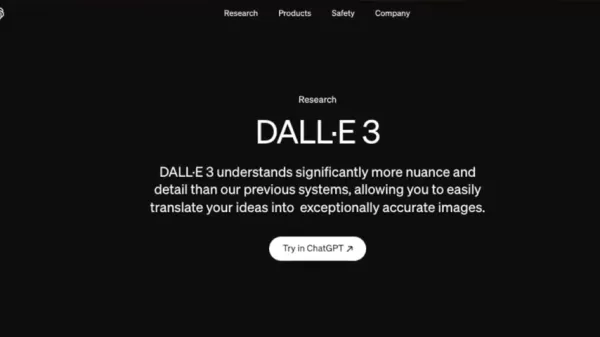Salesforce’s Transformer Model Guide: AI Text Summarization Explained
In an era where information overload is the norm, AI-powered text summarization has become an indispensable tool for extracting key insights from lengthy documents. This comprehensive guide examines Salesforce's groundbreaking AI summarization technology, showing how you can implement your own sophisticated summarizer with remarkably little code. We'll explore the underlying technology, walk through practical implementation steps, and examine real-world applications that demonstrate its transformative potential.
Key Highlights
Salesforce AI Summarizer: Leverage cutting-edge technology to transform lengthy documents into concise summaries
Transformer Architecture: Understand the powerful neural networks driving modern summarization tools
Simple Implementation: Create functional summarizers with minimal Python code
Essential Libraries: Utilize Torch and Transformers to build your summarization pipeline
Practical Applications: Discover how AI summarization enhances productivity across industries
The Fundamentals of AI Text Summarization
Understanding Modern Summarization Techniques
Contemporary AI summarization employs sophisticated natural language processing to distill the essence of text while preserving meaning and context. These systems fall into two primary categories:

Extractive methods identify and combine key phrases from the source material, maintaining original wording for reliability. Abstractive approaches comprehend content at a conceptual level, generating novel phrasing that captures core ideas more concisely. Transformer models have revolutionized both approaches by enabling nuanced understanding of linguistic relationships and context.
Transformer Models: The Engine Behind Modern NLP
Breakthrough architectures like BART and T5 have redefined what's possible in text summarization. These models employ self-attention mechanisms to analyze how every word relates to others in a document, enabling comprehensive understanding of context and meaning.

The real power emerges through pre-training on vast text corpora followed by fine-tuning for specific tasks. This two-phase approach allows a single model to develop both broad linguistic competence and specialized summarization skills, producing outputs that often rival human quality.
Implementation Guide
Environment Setup
Before building your summarizer, configure your Python environment with these essential components:
- Install Python 3.6 or higher
- Set up a virtual environment for dependency management
- Install PyTorch for tensor operations and neural network support
- Add the Transformers library for pretrained model access
- Include the Summarizers package for streamlined implementation
Building Your First Summarizer
The implementation process demonstrates the remarkable simplicity enabled by modern NLP libraries:
from summarizers import Summarizers
text_sample = """[Insert your lengthy document text here]"""
summarizer = Summarizers()
summary = summarizer(text_sample)
print(summary)

This concise implementation belies the sophisticated technology at work. The Summarizers class handles model loading, text processing, and summarization generation while abstracting away technical complexity.
Advanced Features and Customization
Fine-Tuning for Domain Specificity
While pretrained models perform well out-of-the-box, significant accuracy improvements come through domain adaptation:
- Legal document summarization requires understanding of formal language and precedent
- Medical text processing demands familiarity with clinical terminology
- Technical documentation benefits from engineering concept recognition
Performance Optimization
For production deployments, consider these enhancements:
Optimization Impact Implementation GPU Acceleration 10-50x speedup CUDA-enabled PyTorch Model Quantization Reduced memory usage 8-bit precision Batching Higher throughput Parallel processing
Practical Applications
Enterprise Use Cases
Organizations across industries are transforming operations with AI summarization:
- Financial analysts processing earnings reports
- Legal teams reviewing case law
- Researchers synthesizing academic papers
- Customer support analyzing ticket trends

Productivity Enhancements
Individual professionals achieve remarkable efficiency gains:
- Executives digesting lengthy board materials
- Journalists tracking developing stories
- Students mastering complex subjects
- Investors monitoring market news
Considerations and Best Practices
Quality Assurance
While powerful, AI summarizers require careful implementation:
- Establish accuracy benchmarks for your domain
- Implement human review workflows for critical applications
- Monitor for bias in summarization outputs
- Validate against gold-standard human summaries
Ethical Considerations
Responsible deployment requires attention to:
- Copyright and fair use compliance
- Transparency about automated processing
- Proper context preservation
- Mitigation of potential misinformation risks
Related article
 Seeking Faith and Purpose in an Age of Skepticism
In our modern age of scientific inquiry and critical thinking, maintaining spiritual faith often feels like walking against the tide. Many struggle to reconcile timeless beliefs with contemporary skepticism, leaving them longing for deeper meaning. T
Seeking Faith and Purpose in an Age of Skepticism
In our modern age of scientific inquiry and critical thinking, maintaining spiritual faith often feels like walking against the tide. Many struggle to reconcile timeless beliefs with contemporary skepticism, leaving them longing for deeper meaning. T
 How ChatGPT Works: Capabilities, Applications, and Future Implications
The rapid evolution of artificial intelligence is transforming digital interactions and communication. Leading this transformation is ChatGPT, an advanced conversational AI that sets new standards for natural language processing. This in-depth examin
How ChatGPT Works: Capabilities, Applications, and Future Implications
The rapid evolution of artificial intelligence is transforming digital interactions and communication. Leading this transformation is ChatGPT, an advanced conversational AI that sets new standards for natural language processing. This in-depth examin
 Generate Unique Brand Names Instantly with Namflix AI Business Name Generator - Free Tool!
Crafting Your Perfect Brand Identity with AIIn today's competitive digital marketplace, establishing a distinctive brand identity starts with choosing the perfect name - one that captures your unique value proposition while resonating with your targe
Comments (0)
0/200
Generate Unique Brand Names Instantly with Namflix AI Business Name Generator - Free Tool!
Crafting Your Perfect Brand Identity with AIIn today's competitive digital marketplace, establishing a distinctive brand identity starts with choosing the perfect name - one that captures your unique value proposition while resonating with your targe
Comments (0)
0/200
In an era where information overload is the norm, AI-powered text summarization has become an indispensable tool for extracting key insights from lengthy documents. This comprehensive guide examines Salesforce's groundbreaking AI summarization technology, showing how you can implement your own sophisticated summarizer with remarkably little code. We'll explore the underlying technology, walk through practical implementation steps, and examine real-world applications that demonstrate its transformative potential.
Key Highlights
Salesforce AI Summarizer: Leverage cutting-edge technology to transform lengthy documents into concise summaries
Transformer Architecture: Understand the powerful neural networks driving modern summarization tools
Simple Implementation: Create functional summarizers with minimal Python code
Essential Libraries: Utilize Torch and Transformers to build your summarization pipeline
Practical Applications: Discover how AI summarization enhances productivity across industries
The Fundamentals of AI Text Summarization
Understanding Modern Summarization Techniques
Contemporary AI summarization employs sophisticated natural language processing to distill the essence of text while preserving meaning and context. These systems fall into two primary categories:

Extractive methods identify and combine key phrases from the source material, maintaining original wording for reliability. Abstractive approaches comprehend content at a conceptual level, generating novel phrasing that captures core ideas more concisely. Transformer models have revolutionized both approaches by enabling nuanced understanding of linguistic relationships and context.
Transformer Models: The Engine Behind Modern NLP
Breakthrough architectures like BART and T5 have redefined what's possible in text summarization. These models employ self-attention mechanisms to analyze how every word relates to others in a document, enabling comprehensive understanding of context and meaning.

The real power emerges through pre-training on vast text corpora followed by fine-tuning for specific tasks. This two-phase approach allows a single model to develop both broad linguistic competence and specialized summarization skills, producing outputs that often rival human quality.
Implementation Guide
Environment Setup
Before building your summarizer, configure your Python environment with these essential components:
- Install Python 3.6 or higher
- Set up a virtual environment for dependency management
- Install PyTorch for tensor operations and neural network support
- Add the Transformers library for pretrained model access
- Include the Summarizers package for streamlined implementation
Building Your First Summarizer
The implementation process demonstrates the remarkable simplicity enabled by modern NLP libraries:
from summarizers import Summarizers
text_sample = """[Insert your lengthy document text here]"""
summarizer = Summarizers()
summary = summarizer(text_sample)
print(summary)

This concise implementation belies the sophisticated technology at work. The Summarizers class handles model loading, text processing, and summarization generation while abstracting away technical complexity.
Advanced Features and Customization
Fine-Tuning for Domain Specificity
While pretrained models perform well out-of-the-box, significant accuracy improvements come through domain adaptation:
- Legal document summarization requires understanding of formal language and precedent
- Medical text processing demands familiarity with clinical terminology
- Technical documentation benefits from engineering concept recognition
Performance Optimization
For production deployments, consider these enhancements:
| Optimization | Impact | Implementation |
|---|---|---|
| GPU Acceleration | 10-50x speedup | CUDA-enabled PyTorch |
| Model Quantization | Reduced memory usage | 8-bit precision |
| Batching | Higher throughput | Parallel processing |
Practical Applications
Enterprise Use Cases
Organizations across industries are transforming operations with AI summarization:
- Financial analysts processing earnings reports
- Legal teams reviewing case law
- Researchers synthesizing academic papers
- Customer support analyzing ticket trends

Productivity Enhancements
Individual professionals achieve remarkable efficiency gains:
- Executives digesting lengthy board materials
- Journalists tracking developing stories
- Students mastering complex subjects
- Investors monitoring market news
Considerations and Best Practices
Quality Assurance
While powerful, AI summarizers require careful implementation:
- Establish accuracy benchmarks for your domain
- Implement human review workflows for critical applications
- Monitor for bias in summarization outputs
- Validate against gold-standard human summaries
Ethical Considerations
Responsible deployment requires attention to:
- Copyright and fair use compliance
- Transparency about automated processing
- Proper context preservation
- Mitigation of potential misinformation risks
 Seeking Faith and Purpose in an Age of Skepticism
In our modern age of scientific inquiry and critical thinking, maintaining spiritual faith often feels like walking against the tide. Many struggle to reconcile timeless beliefs with contemporary skepticism, leaving them longing for deeper meaning. T
Seeking Faith and Purpose in an Age of Skepticism
In our modern age of scientific inquiry and critical thinking, maintaining spiritual faith often feels like walking against the tide. Many struggle to reconcile timeless beliefs with contemporary skepticism, leaving them longing for deeper meaning. T
 How ChatGPT Works: Capabilities, Applications, and Future Implications
The rapid evolution of artificial intelligence is transforming digital interactions and communication. Leading this transformation is ChatGPT, an advanced conversational AI that sets new standards for natural language processing. This in-depth examin
How ChatGPT Works: Capabilities, Applications, and Future Implications
The rapid evolution of artificial intelligence is transforming digital interactions and communication. Leading this transformation is ChatGPT, an advanced conversational AI that sets new standards for natural language processing. This in-depth examin
 Generate Unique Brand Names Instantly with Namflix AI Business Name Generator - Free Tool!
Crafting Your Perfect Brand Identity with AIIn today's competitive digital marketplace, establishing a distinctive brand identity starts with choosing the perfect name - one that captures your unique value proposition while resonating with your targe
Generate Unique Brand Names Instantly with Namflix AI Business Name Generator - Free Tool!
Crafting Your Perfect Brand Identity with AIIn today's competitive digital marketplace, establishing a distinctive brand identity starts with choosing the perfect name - one that captures your unique value proposition while resonating with your targe





























